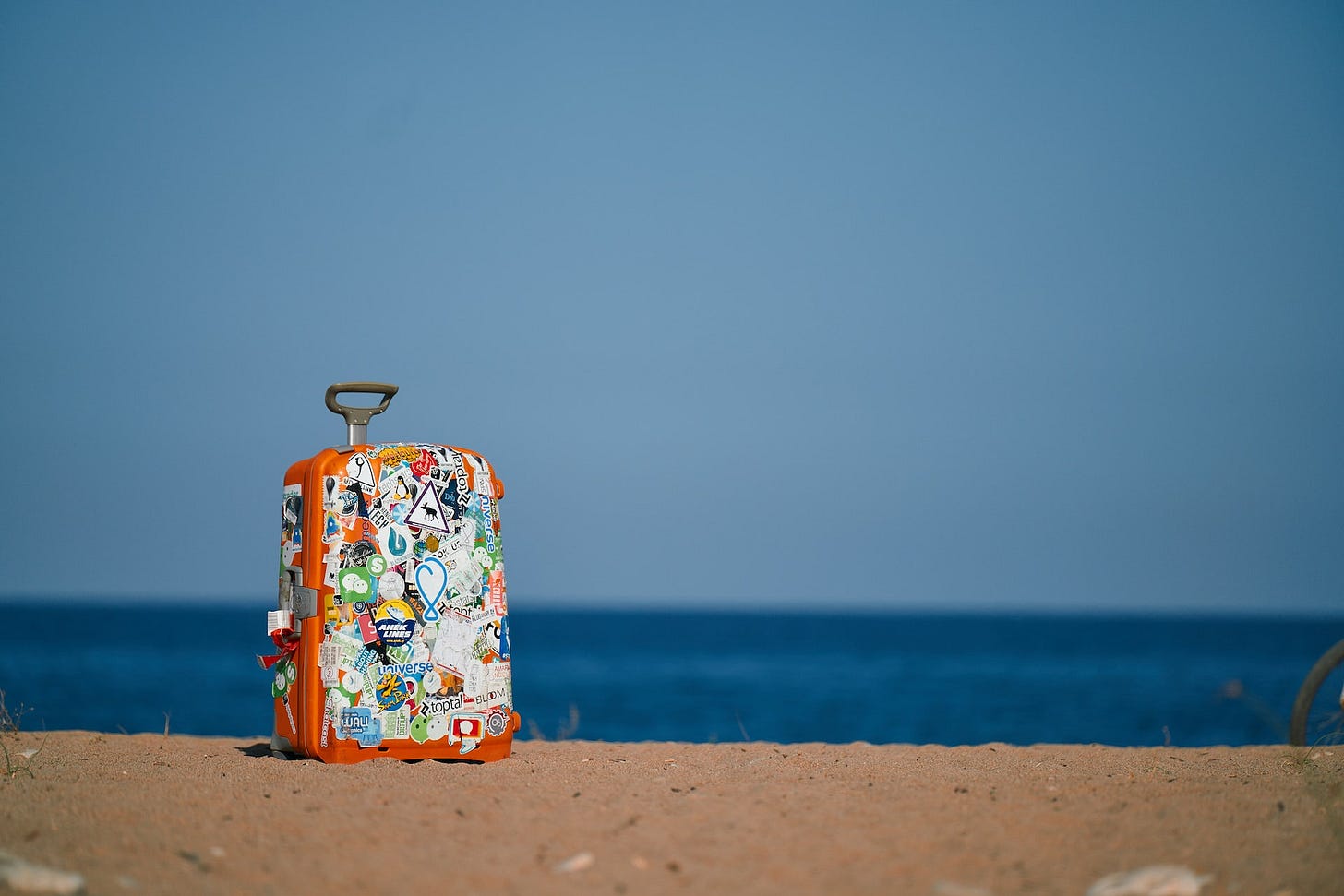
Your recent idyllic beach trip to a foreign country has you convinced that you may never be able to fully enjoy an idyllic beach trip to a foreign country.
Your first experience of this type of trip happened when you were 18. It was also your first time out of the country, and your first visit to Thailand ever. The summer after you graduated from high school, your dad — who is Thai but had not been back to the country in about 20 years — planned a month-long visit with you and your two younger sisters. You would spend time with family around Bangkok, stay in his college friend's guesthouse in Chiang Mai and trek around the jungle, and spend two weeks at the beach: one week in Hua Hin and one week in Krabi.
The biggest shock on that trip was realizing that you were not Thai or half-Thai, as you had thought for your entire life. You were so American. You don't speak Thai, but even you could pick out the word "farang," again and again, used to describe you and your sisters. Foreigner. You couldn't disagree.
And yet you weren't a complete farang, were you? Because on that trip and the two other visits to Thailand you've made in your life, you couldn't totally dissociate yourself from the Thai woman you saw hanging off the back of some white guy's motorbike; or the college students wearing crisp white shirts, studying hospitality-focused English; or the mother asking for money on the street, baby strapped to her back. You couldn't make a clean cut: Them and Me. You could see the shadows of what could have been. What if you didn't have a white mom? What if you weren't an American citizen? What if you hadn't grown up speaking English in the suburbs of L.A., where your middle class life was full of unnoticed privileges?
You can't be the only person of color who has experienced this, visiting their or their family's country of origin. A particular mix of guilt and shameful relief, of feeling like an outsider, and the deep sadness of being an outsider in a place you thought would feel more like home.
It follows you, this feeling, even when you travel to a different country full of white Americans and Europeans eating and relaxing and adventuring "on a budget," served by local brown people. They aren't your people. But does that mean the white people stuffing themselves with ceviche are your people?
You wonder this while sitting by the pool eating ceviche. It feels stupid to be thinking about this when you should just be enjoying the pool, the breeze, the food. Would the woman who brought you the ceviche, if she were suddenly relaxing by the pool instead of working, would she be thinking about this, or would her mind be a buzzing blank of sunshine and rest?
It follows you, this feeling. Wondering how much around you is real life and people doing the things they would normally do, and how much is performance for mostly foreign tourists. You didn't plan it this way, but you are there during Carnaval, the celebratory lead-up to Fat Tuesday. Here it is celebrated by dance groups dancing in the sandy streets, music pumping from speakers or a live band standing on the back of a pickup truck nearby. It is not for tourists; it is for the sheer communal joy of dancing in the streets, costumes swirling, music so loud you can feel it pulsing under your skin.
You don't know what the schedule is, so you bump into a performance once or twice a night while walking through town, a joyful surprise each time. You are reminded of second lines in New Orleans, the meandering path from bar to bar, documented on an ancient mimeographed flier that someone scanned and put online at some point, if they documented it on paper at all. The beauty of doing something for the human beings you know and love, not for an algorithm or tourist dollars. This is the highlight of the trip.
You used to love reading travel magazines, but after moving to the Deep South, you stopped. You realized nothing you read would ever tell you if you, an Asian woman, would feel comfortable traveling to all of the charming Southern towns they wrote about. Having visited some of them — dining out at restaurants oozing with white nativism, enduring stares at your interracial family, feeling a shift in how you are treated when your white husband isn't around — you know the writers are not thinking of you or your experience. What can they tell you about where you should go and how it will feel? It seems laughable.
Sometimes your face is your baggage, and sometimes it's your heart. You can't travel lightly, like some millennial travel influencer couple. It's all so heavy. But even if you could put it down, would you?
Probably not.
If you liked this essay, you might also like this one:







Thank you for bringing us into the imagery and perspective through your writing. I really enjoyed the voice of this essay and always appreciate the personal and thoughtful ways you share ❤️